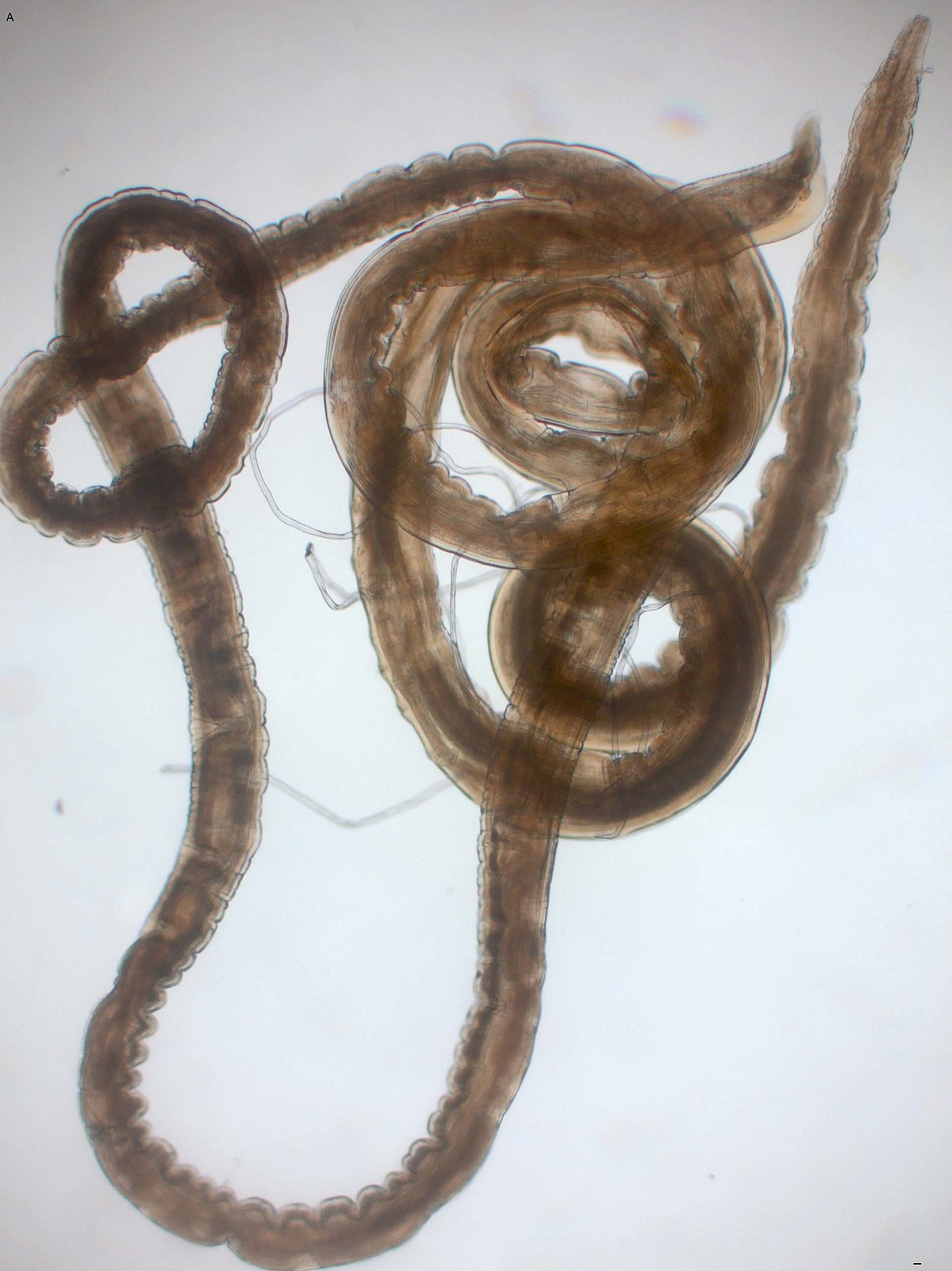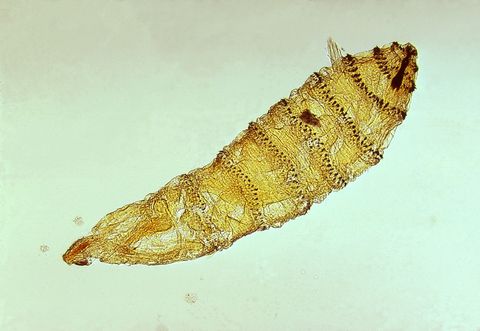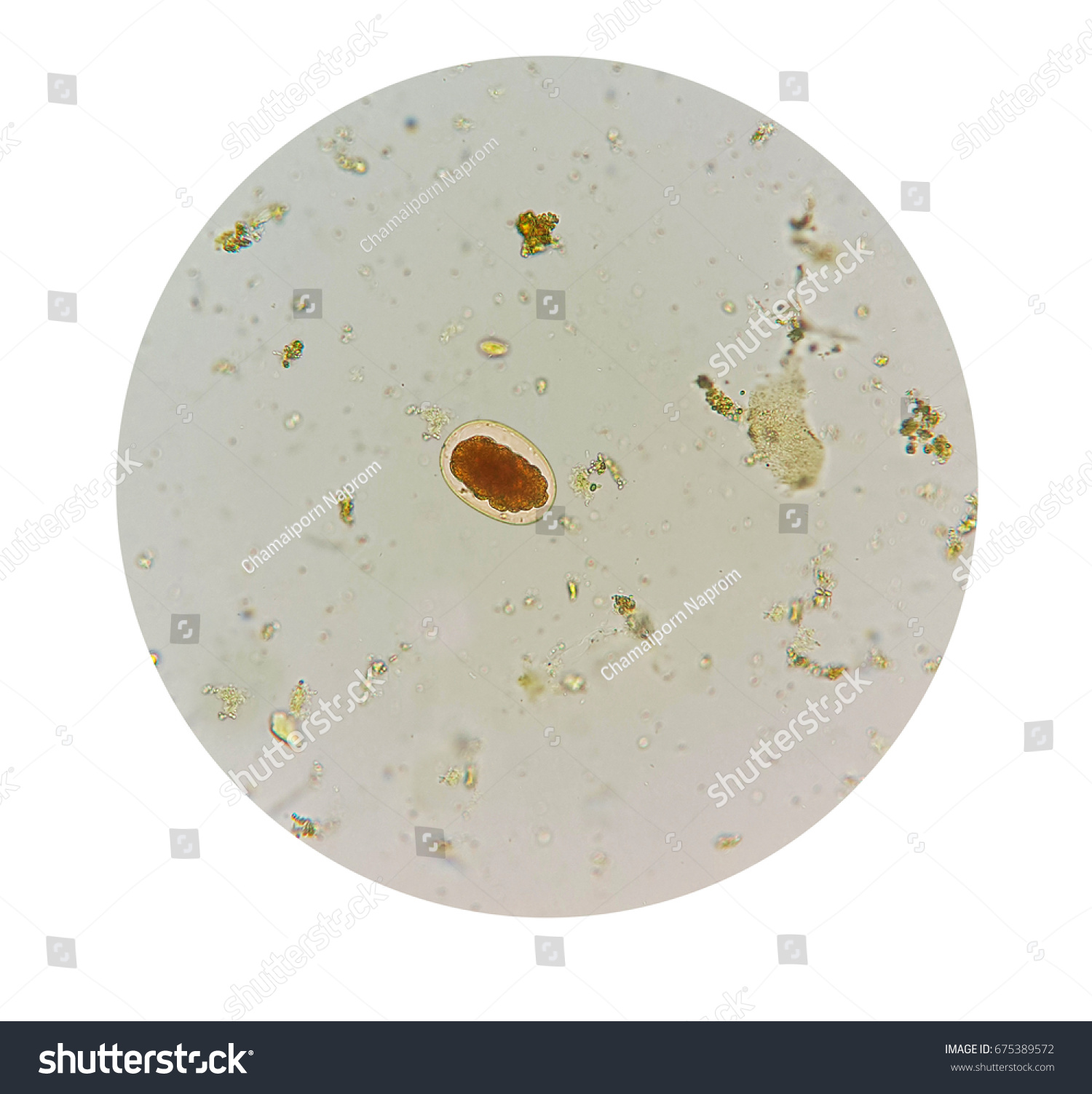What Are Intestinal Worms (Helminths)?
Human intestinal worms are parasites that live in the human intestine, eat bowel content or suck blood from the intestinal wall. Intestinal worms may cause severe infection,s predominantly in children in tropical and subtropical areas. It is more common in developing nations where proper toilet and sewage facilities are limited.
The presence of parasites of any kind (including intestinal worms) in or on the body is referred to as an infestation. A helminth is a medical term for intestinal worms. Therefore intestinal worms are a helminth infestation. These human intestinal parasites usually gain entry into the gut through the mouth, via contaminated food or water. Some foods, specifically some animal meats, are more likely to transmit these human intestinal worms.
Worms, their parts or eggs can be sometimes found in the stool Itchy skin rash; Swelling around the eyes; Swollen itchy bump on the site of the parasite entry (usually on the foot). Sources of Human Intestinal Worm Infection. Worm eggs, shed in the stool of humans or animals infected with adult worms, can contaminate soil or water. Infect about 25% of the world's population. The eggs leave the body with the stool and hatch two days later in the soil. The larvae enter the human body through the skin, usually through the soles of children and others who go barefoot.
Symptoms of Infestation With Intestinal Worms
Intestinal worms may live in someone’s intestine for years without causing any symptoms. General symptoms may appear few weeks or several months after infestation and include paleness, weakness, tiredness (from anemia due to lost blood sucked by worms), restlessness, disturbed sleep and weight loss (due to loss of nutrients used by worms). Abdominal symptoms can last from weeks to months and include:
- Distended belly
- Foul smelling breath or gas
- Loss of appetite
- Vomiting
- Loose bowel movements or diarrhea
- Worms, their parts or eggs can be sometimes found in the stool
- Itchy skin rash
- Swelling around the eyes
- Swollen itchy bump on the site of the parasite entry (usually on the foot).
Sources of Human Intestinal Worm Infection
Worm eggs, shed in the stool of humans or animals infected with adult worms, can contaminate soil or water. Once outside the body, eggs need several days or weeks to develop into the infective stage (cysts) or immature worms (larvae) that may be ingested when you eat with soil-contaminated hands or when you eat raw unwashed vegetables.
Another source of intestinal worms is undercooked infected meat of domestic pig, freshwater fish or wild animals (bear, walrus, etc.). One can also be infected by ingesting dog’s fleas that have ingested parasitic eggs. Children may contract infection from sandboxes contaminated with pets’ stool. Certain types of immature worms may penetrate through your skin during swimming or walking barefoot. When these parasites reach the small or large intestine they grow into adult worms. Common garden worms usually do not cause illness in human.
How Intestinal Worms Cause Disease?
Adult worms, which may be from 1 millimeter to several meters long, invade the bowel wall and suck the blood from it, or live freely in the intestine and utilize nutrients from the bowel content. The result are small intestinal or colonic inflammation and ulcers, anemia, and protein, iron and vitamin (mainly A, C, B12) deficiency. Intestinal obstruction may occur in severe cases. Larvae may migrate to other organs (liver, spleen, bladder, muscles, lungs, brain), where they form cysts and trigger allergic inflammation.
Common Human Intestinal Worms
A. Roundworms (Nematode)
- The large roundworms (Ascaris lumbricoides) are found worldwide. These worms are several inches long and thick as a pencil (Picture 1).
- Hookworms (Necator americanus, Ancylostoma duodenale) are mostly found in tropical areas; they are about a half of inch long. These worms may be contracted by walking barefoot as they penetrate through the skin. Once in the intestine, they suck blood from the intestinal wall.
- Whipworm (Trichuris trichiura) cause an infestation known as trichuriasis.
- Threadworms
- Strongyloides stercoralis
- Pinworm or seatworm (Enterobius vermicularis) is half an inch long, white worm; its egs cause anal itch.
- Trichinella spiralis causes an infestation known as trichinosis. It may be acquired by eating undercooked contaminated pork. Parasites move from the intestine into muscles and other organs where they form cysts – encapsulated forms, which are hard to eradicate. Main symptoms are abdominal pain, muscular and joint pain, swelling of the eyes and skin rash.
Picture 1. Roundworm –Ascaris lumbricoides (several inches long)
(source: phil.cdc.gov)
B. Flukes (Trematoda)
- Schistosoma mansonicauses intestinal schistosomiasis (bilharziasis), mainly in Africa, Middle East, Caribbean and South America. It is about half an inch long and 1 millimeter thick. Adult parasites live in intestinal veins and release eggs into the intestinal hollow. Diagnosis is made by finding eggs in the stool and urine.
Picture 2. Schistosome dermatitis (swimmer’s itch) –
– a rash on the lower arm on the sites of parasite entry
(source: phil.cdc.gov)
C. Tapeworms (Cestoda)
- Fish tapeworm (Diphyllobothrium latum) is contracted by infected freshwater fish. It may exceed 10 meters in length and is found in Europe, Russia and the United States.
- Beeftapeworm (Taenia saginata) and pork tapeworm (Taenia solium) may be contracted by undercooked beef or pork, respectively. This infestation is referred to as taeniasis. It is more frequently seen in rural areas, worldwide. Adult worms may be over 20 meters long.
- Dog tapeworm (Dipyllidium canium) is common in dogs and cats. Humans are (rarely) infected by ingesting dog fleas, infected with tapeworm larvae. Rice-sized particles can be found in the stool.
Picture 3. Beef tapeworm – Taenia saginata (several meters long)
(source: Wikimedia)
Trichicara cati or Trichicara canis can be attracted by ingesting eggs in cat’s or dog’s stool, respectively. After ingesting the egges it develops into larvae that migrate through the body organs, like the lungs. Common symptoms are fever and cough.
How Are Intestinal Worms Diagnosed?
If you suffer from unexplained abdominal bloating, diarrhea, weakness or weight loss, your doctor should suspect intestinal worms (or other intestinal parasites) as a possible cause. Diagnosis is confirmed by stool test for ova and parasites (O&P test). Hemoccult can reveal blood in the stool. Blood tests can reveal anemia (low ferritin and low red cells), low levels of vitamins A, C or B12, antobodies against certain worms, or elevated levels of eosinophils and IgEantibodies. Pinworm eggs from anal region can be collected by adhesive tape test.
Treatment of Intestinal Worms
A single dose of anti-worm drug, like mebendazole (safe for pregnant women), albendazole, diethylcarbamazine, ivermectin or praziquantel kills parasites in most cases. For some days after the eradication, a stool-to-mouth auto-infection with eggs is still possible. Untreated infestations may last for years.
Prevention of Intestinal Worms
The following should prevent you from attracting intestinal parasites:
- Wash your hands after visiting toilet, touching soil or pets, and before meal
- Tell kids to avoid touching mouth and nose with their hands
- Do not walk barefoot and swim in lakes in tropical areas
- Avoid suspicious restaurants with poor hygiene
- Cook meat and fish well
References:

- Ascariasis.NIH.gov
- Common intenstinal parasites. Medscape.com
Reviewed and updated on August 7, 2018.
Pictures Of Parasites In Human Stool
Parasite Symptoms, Story In A Nutshell
- Parasite symptoms in humans are very common.
- Diagnosis challenge: parasitic infections are not always identified as the cause of these symptoms.
- Treatment challenge: symptoms are treated rather than the cause, recurrent symptoms that can’t be explained that are keep coming back.
Treatment Options:
- Antiparasitic prescription medication.
- Natural alternatives: parasite cleanse.

Common signs and symptoms of parasites may include:
| Affected Areas | Parasite symptoms |
|---|---|
| Digestive issues | Gas, bloating, constipation, diarrhea, nausea, vomiting. |
| Abdominal pain | Upset stomach, stomach cramps, stomach pain, tenderness. |
| Stool | Greasy loose stool, worms, parasites, mucus, eggs or candida yeast in stool. |
| Eating | Cravings for sweets, constantly hungry, increased or loss of appetite. |
| Energy, wellbeing | Feeling tired, fatigue, exhaustion, mood swings and depression, muscle and joint pain, body aches. |
| Skin | Skin rashes and skin issues such as eczema, hives, rosacea. |
| Sleep | Poor sleep, insomnia, nightmares, night sweats, teeth grinding in sleep, anus itching at night. |
| Genitals | Vaginal itching around the vulva, anal itching, rash, vaginal infections. |
| Overall health | Unexplained weight loss or weight gain, nutritional deficiencies, dehydration, fever. |
How do you get rid of parasites?
Images Of Parasites In Human Stool
A very important step before you start to remove and get rid of parasites in your body, is to find out how did you get parasites in your body to begin with. You do not want to reinfect yourself all over again. Sometimes the cause of the parasitic infection may be related to one time incidents such as international trips, consuming contaminated food or water, or being exposed to someone with a parasitic infection.
In many cases however, parasitic infections may be caused by your daily activities and lifestyle. Common causes of worms in humans may include eating raw or undercooked meat or fish, catching the parasites from your pet, poor hygiene and more.
Here is an overview of our parasite cleanse protocol. In addition to its effectiveness, special consideration was given for safety. The objective is to get rid of parasites while minimizing potential parasite die off symptoms and other side effects.
Intestinal parasites such as intestinal worms in humans doesn’t always cause any signs or specific parasite symptoms. For this reason, many people who are at higher risk, such as frequent international travelers, people with pets or with a weakened immune system follow the parasite cleanse protocol for prevention 1-2 times a year. Notice that the order of the steps matters. Click on the links to the topics you wish to learn more about.
Microscopic Pictures Of Parasites In Human Stool
Parasite treatment
| Step | Name | Purpose |
| 1 | Oxygen colon cleanse |
|
| 2 | Parasite cleanse diet |
|
| 3 | Probiotics |
|
| 4 | Anti-parasite herbs |
|
| 5 | Vitamins & Minerals |
|
How do you know you have a parasite?
A good way to know if you have a parasite infection is to look for the common signs of parasites or signs of worms in humans, especially:
Parasite symptoms shown in the above table that you can not explain.
Chronic digestive issues.
History of of food poisoning.
Travel internationally, especially if you had traveler’s diarrhea.
Unexplained weight gain or weight loss.
Nutritional deficiencies despite following a healthy diet.
Autoimmune disorders.
If you suspect you may have a parasite infection, you may want to ask your doctor to order intestinal parasite tests. The parasite symptoms you can share with your doctor are very important as they may point your doctor to the right test for a specific parasitic infection. To learn more about parasite testing, see:
how to test for parasites.
Common types of intestinal worms and parasites in humans
| Type | How do you get infected | Common symptoms and signs of infection |
| Pinworms (Threadworms) |
|
|
| Hookworms (1) | Contact with feces and infected soil by walking barefoot. |
|
| Tapeworms | Eating undercooked meat from infected animals |
|
| Flukes (trematodes) | Consuming contaminated raw watercress, freshwater plants, water, or infected fish, snails. | Many infections caused by flukes have no initial signs until organ damage occur in cases of liver flukes or in the lungs. Other symptoms may include:
|
| Roundworms | Eating undercooked meat that contains the larvae. |
|
How do you test for parasites in humans?
Pictures Of Worm Eggs In Human Stool
There are various of lab tests that doctors and health providers typically use to detect and diagnose parasitic infections in the body. Finding the most accurate parasite test however, may be a challenge, since a negative parasite test doesn’t mean you do not have a parasitic infection.
For this reason, several tests are usually conducted. The parasite symptoms you can share with your doctor are very important as they may indicate a specific parasitic infection. This can help your doctor to order the right test.
According to the Centers for Disease Control and Prevention (CDC), the commonly used parasite testing may include (2):
| Test type | What does it look for: | When to test |
| Fecal stool test, ova (eggs), parasite test | checks the presence of parasite eggs in stool. | digestive and abdominal parasite symptoms. |
| Endoscopy (mouth) Colonoscopy (rectum) | nonsurgical procedure used to examine the digestive tract using a tube with a camera via the mouth (endoscopy) or rectum (colonoscopy). | negative stool test. |
| Blood test: Serology | looks for antibodies or parasite antigens. | test for a specific parasite infection. |
| Blood test: Blood smear | looks for parasites that are found in the blood under a microscope. | test for a specific parasite infection. |
| X-ray, MRI, CAT scans | look for parasitic infections that may impact different organs. | |
| Pinworm test Scotch tape test | looks for pinworms using scotch tape around the anus to collect pinworm eggs. The tape is sent to the lab and being checked under a microscope for eggs (3). | identify a pinworm infection. |
What is the cause of worms in humans?

How do you get parasites?
Microscopic Photos Of Parasites In Human Stool
The most common causes of worms and parasites in humans include:
Microscopic Pictures Of Parasites In Human Stool

- Living or visiting areas known to have parasites, especially areas that are known for poor sanitation.
- Eating raw or undercooked meat or fish such as sushi.
- International travel.
- Poor hygiene.
- Walking barefoot.
Additional risk factors may include:
- Children or elderly.
- Exposure to child and institutional care centers.
- A weakened or compromised immune system.
- Having pets.
- Best Doctors For Candida Overgrowth & Yeast infection - June 7, 2019
- Candida Cleanser : The Complete Natural Solution - June 2, 2019
- Strongest Candida Killer : Best Natural Antifungal Supplements & Foods - May 20, 2019